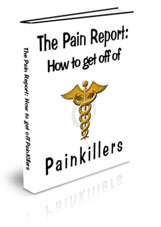Opiate Overdose Symptoms
Opiates are drugs which are based from the opium poppy. These drugs are most frequently prescribed as painkillers, because they attach themselves to the opiate receptors inside the brain and create relief of pain as well as sensations of euphoria, accompanied by a time of feeling peaceful and content. Opiates are extremely addictive, specifically when not used as directed through a physician. Additionally, because the body gets accustomed to the opiates, it will require more medication to produce the same result, which unfortunately can cause an overdose.
In addition to the immediate effects of the drugs, other short and long-term effects are often related to opiate use and abuse. The most typical side effects are constipation, nausea and pinpoint pupils. As the addict increases intake, the results become more severe and may include extreme sleepiness, slowed respiration or breathing and pulse rates. The most well known side effect is physical dependence or addiction that takes place with long-term use.
The most unfortunate side effect of opiate or painkiller abuse is overdose or death.
Opiate Overdose Symptoms
Intestinal Symptoms
Opiates make the muscle tissue of your intestinal tract to become relaxed, which cause the regular movements which assist digestion and move waste products out of your body, to stop. The end result is constipation, which will, in the case of an overdose, becomes serious. Stools become so hard the intestinal tract become impacted. If they are not treated, this may lead to a rupture with the bowels. Other intestinal signs and symptoms of an opiate overdose might include loss of appetite or spasms of the stomach or intestines thereby causing nausea and vomiting.
The Eyes
Anyone who has consumed an excessive amount of an opiate will likely have blood-shot eyes, but will also have pinpoint pupils. Pinned or pinpoint pupils become very small, even in a dark room. Even though pinpoint pupils aren’t limited to an overdose, it is a symptom which can help confirm an opiate medication is the reason for the overdose.
Respiratory Symptoms
Probably the most dangerous symptoms of opiate overdose is a depressed, respiratory or breathing rate, as per the National Institute for Drug Abuse. The individual could have difficulty breathing, show labored breathing or very shallow breaths. This could lead to the appearance of blue skin tone, lips or fingernails. Breathing can become so shallow that it stops. This is normally the main cause of death from an overdose.
Cardiovascular Symptoms
Opiates can also negatively affect the cardiovascular system, specifically in an overdose scenario. An individual who has consumed an excessive amount of an opiate will have a decreased pulse rate together with low blood pressure. When your heart is unable to pump blood efficiently throughout the body, internal organs and brain they can become oxygen starved and the result is damage.
Central Nervous System
Opiates depress the central nervous system, which causes a loss of alertness. The most typical result of this is drowsiness which causes the overdosed individual to briefly fall asleep, even in the middle of a conversation. Much more harmful effects on the central nervous system are a loss of consciousness, seizures or even coma.
The CDC estimates that more than 100 people die every day from unintentional drug overdoses; many of them involving prescription pain killers.
Get my Report on How to get off Painkillers with Suboxone HERE, It's only $14.97
If you liked this post please share it with the buttons below.

















